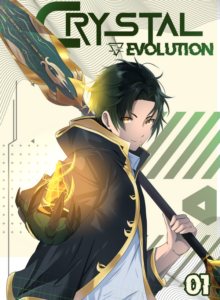The indomitable Dulìman family had finally met its end.
Nobody knew who set the fire, but only one lived to see the ashes: Edwin Dulìman, a man too young and protected to understand the internal affairs of a noble bloodline. Whether or not the final deed was committed by competitors, family, or the crown, the Dulìman name faded into obscurity soon after, leaving young Edwin with only his hands and a single blue hair tie from his late brother.
There were no bones to bury, no memorabilia to pawn, not even the silver threads of his mother’s evening gown. As though it were scraped by a flaming knife, the estate had been leveled and charred to an irreversible black. Anyone else who faced the aftermath could only sit and stare blankly at the stars in the sky, waiting for something to pick them up before they too fell.
Fortunately, Edwin was never one to stay down.
He marched to the nearest village and used his nimble mind to assist the villagers’ everyday lives. At first, he simply helped the elderly farmers in the field and quickly learned their routines. Next, he became a tutor and daycare for children left behind by their parents who considered their children to be too young or sickly to enter the fields. Finally, seeing his superior education and his willingness to step in, Edwin took over the village’s financial responsibilities and brought the village to a state of prosperity that the villagers had never seen before.
Very soon, Edwin’s students were able to attend the schools in the city, to which Edwin would accompany them once a month to expand his contacts and look over his former students’ progress. Nobody seemed to recall the name Dulìman nor the family’s downfall, which was bittersweet for Edwin to witness.
No doubt, he felt an indignant injustice for the loss of his family name’s prestige, but he also believed that he would be at a loss if anyone were to ask how his brother was doing.
Time passed.
The little village had expanded into a minor trading town. Much of its fortune was still made from the fresh produce of the fields, but with the return of children who gained experience in the city, there became a lust for technology and greater quality. Those who made friends with the bourgeoisie had no choice but to invite them over to fulfil their curiosities, bringing favorable traffic to the village. Edwin’s influence spread, and he soon built a tiny empire of his own.
This business went on quietly, expanding across borders and taking up conversations between common and wealthy folk alike. It was only after the announcement of his wedding day that the nobles remembered his name.
As it turned out, even a genius like Edwin Dulìman could be forgotten.
Edwin’s bride was just as extraordinary as he was. Gentle yet quick-witted, a commoner yet accomplished, the two were fascinated with each other after meeting over a few days at the borders.
She had built her own team of researchers that studied the flaws of social mentality and strived to offer a place for the mutes, the blind, and the crippled to proudly live in. It was within her own charity that the two met, Edwin participating for the sake of international contacts while the woman named Sasara gathered people to take interest in her ideas. At this time, he had money; she had finesse. Both found a partnership that should have sparked the beginning of a fortuitous future.
Unfortunately, heaven favors the more miserable means.
Not a year after their consummation, the world fell into an era of uncertainty after the spread of an incurable plague. This plague was highly contagious and swept the lands into martial law. Travelling was nearly nonexistent between houses, let alone cities. Daily necessities could only be distributed by the crown’s hand. Practicing doctors were ushered out of their schools and hospitals to work around the clock, trying to no end to revive wealthy patients who had already been marked by death. Life, which was already so fragile, was quickly slipping away.
Sasara and Edwin were disgusted by the insufficient care the nobles provided and became determined to, at the very least, protect those who ought to be protected and upheld. Afterall, the lives of the commonfolk could not be compared to the nobles nor even the bourgeois; they were people who couldn’t survive under the preventative measures issued by the crown.
While Edwin ran around writing letters to his many contacts who had not yet been felled by the outbreak, Sasara drew, redrew, and finally designed a relief plan the Dulìman fortune could afford to put into practice within their own province. The couple worked hard to suppress the growing dismay and provided on their neighbor’s benefit, miraculously sustaining their own all the while. Other kind-hearted nobles and opportunistic businesses caught on, stalling the looming threat that the plague pursued over the common people.
At long last, the end of the pandemic was in sight! Researchers had finally synthesized a cure and finalized the standards of hygiene required to prevent such tragedies in the future. This news brought tears to many eyes, and the world saw the first few rays of a new day. Sasara and Edwin also rejoiced and hurried to help distribute the cure.
The young couple had overcome the pain of the scourge and came out of the clouds healthy and victorious. Rather, their health and wealth soared within the aftermath.
The crown acknowledged their contributions to the kingdom and granted Edwin the title of Viscount, while the Dulìman family name was restored and gifted a plot of virgin land. Prestige once lost returned tenfold, holding back former enemies and jealous neighbors, for they too were helped by the couple’s doing.
Just as martial law was lifted and the crown declared a new era, the Dulìman family was struck with yet another tragedy.
Amid the plague’s panic, the couple gave birth to a child. Those sparkling, sweet and slender eyes carried a trace of Sasara’s wit, while the toddler’s shy expressions were reminiscent of Edwin’s own. Because of the imperative work in store for both Sasara and Edwin, a nanny was hired in advance to watch over the babe.
The household servants did their fair share of cooing and spoiling during breaks, but the nanny was the one who stayed by the child’s side all day and night in the end. Therefore, nobody was there to witness the nanny add a dash of a white and silvery powder into the suckling cup, nor did anyone notice the artificial growth of the child’s timidity. Nobody was there to stop the nanny from scolding and abusing the child at every given opportunity.
What was once a bright and curious thing slowly drifted into a being that more resembled a wooden doll, showing less and less interest in the world.
This peculiarity reached a breaking point once the chaos of the plague finally ceased.
At that time, Edwin was due for a business trip and could only keep the unsettling thoughts in the back of his mind. Sasara alone could find the underlying cause of the matter, this he knew well.
When it came to her own child, Sasara was helplessly suspicious and could only trust her own eyes. She hid herself in the closet of the nursery and waited for the nanny to return with a new bottle of feed.
It was with an enraged expression as she watched the nanny carelessly push and pinch the child around, rousing the child from its rest. Sasara’s eyes locked onto the child and drowned in the lifeless eyes, giving new meaning to the unresponsive nature that was previously seen and once adored.
Without a single thought, she burst out of the closet and shoved the nanny away from the cradle with a silence as fierce as a stalking lion. The nanny fell with a scream that made Sasara wish nothing more than to cover the nanny’s mouth and squeeze out any last sound in that obnoxious throat but hesitated in front of the blank and watching eyes of her child.
This hesitation was just enough for the nanny to suddenly counterattack with an unseen blade that swept across Sasara’s subclavian artery, sending forth a wretched stream of red.
Already, Sasara’s consciousness had begun to fade. She felt herself collapse forward and used the momentum to rupture one of the nanny’s eyes with her bare hands. Ignoring the nanny’s howl of pain, she forced the blade out of the nanny’s grasp and thrusted down that hateful throat, finally silencing the source of her unbridled anguish.
Did Sasara feel relieved once the deed was done? Could she see her child’s unblinking expression before the last of her life faded? Was she aware of the savage scene that her child would have forever engrained in memory of herself?
If Edwin were to be asked any of this, he would brush them off with only the phrase, “Would it change anything if we knew?”
Within a moment, many things had happened. The sound of the struggle attracted a number of servants who rushed over, only to find the body of their Lady letting out a pool of cooling blood. The nanny, still conscious, lay on the floor not far away, convulsing and croaking out fountains of red that further spread a sweet metallic scent. For an eternity, all that could be heard was the gurgling of the nanny’s throat.
The servants rushed forward to tend to their Lady, ignoring the wriggling mass on the floor. Someone brushed their fingers under the Lady’s nose and found that she was no longer breathing. A silence that was not silent at all filled the nursery, suffocated with unwillingness and grievance. Tears fell, but no one cried. A chill spread, but no one shivered.
How could the world be so warm yet so illogically, frustratingly empty?
Unaware of all this, Edwin returned from his business trip with his arms laden with gifts. His wife was fond of dressing well, and he made sure to scour the city for soft and lovely garments, sparkling understated jewelry, and even a cute matching uniform for the baby. It was high time to update the family portrait, and Edwin believed that now would be a wonderful time to do so and preserve the victorious memories of yesteryear.
And so, he returned.
The estate had the scent of soap and cleanliness, as though it was brand new and never lived in before. Edwin was greeted by the pale faces of his employees, who gathered to meet him at the door. After another minute or two, within the manor whose floors were already scrubbed dry with grief, Edwin collapsed, weak.
He cried as though he would never have enough tears.







The Dream of the Red Chamber
Completed